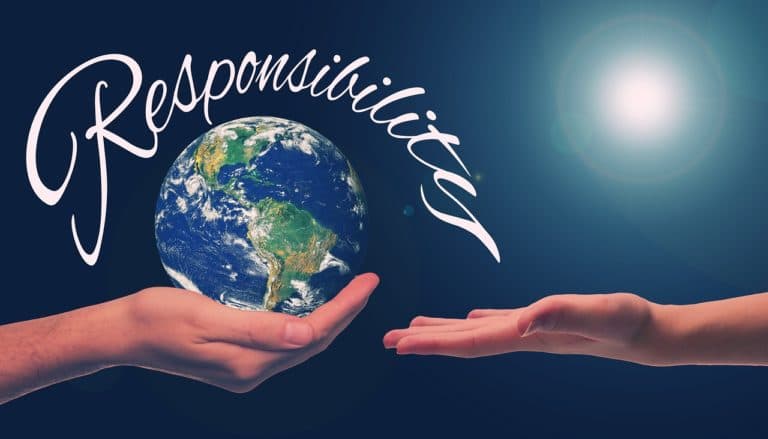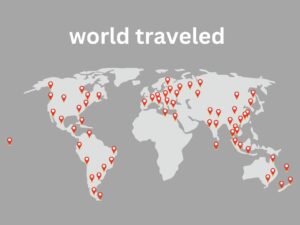Sustainable: What are you really doing about it?
Today, hearing about being sustainable, ecology, consumer habits and many other concepts that on one side or the other are interconnected.
Sustainability, in my opinion, includes all other ideas with the goal of preserving resources and our planet.
We talked about it but what are we really doing?
What are the actions of our daily life to be sustainable?
To begin, let’s understand what sustainability means.
Sustainability is the ability to sustain or preserve a process or system.
The word derives from the Latin sustentare and means to sustain, support, conserve and care.
We achieved sustainability when:
“It satisfies the needs of the present without compromising the ability of future generations to meet their own needs.”
Sustainability is supported by a tripod as below:
- Economic development: Which encompasses the production, distribution and consumption of goods and services.
- Social responsibility: What are people and their living conditions, such as education, health, violence, leisure, among other aspects.
- Environmental conservation: What are the natural resources of the planet and the way they are used by people or companies.
If you want to know more about sustainability see Sustainability: What you need to know to ensure your future.
Well, now that we have an idea the big question is?
What are you doing to be sustainable?
When we talk to friends about it, everyone says we must be ecological, sustainable, non-consumeristic, but when we analyze the day by day actions, the great majority discovered it is not quite like that.
We complains from the companies, the neighbor, the government and society, as we believe they are not doing what is necessary.
How about us? What are we actually doing to be sustainable?
So I decided to self-critique to really find out where I am in relation to becoming sustainable.
What did I find out?
1 – I am not a consumerist.
Besides having few things like clothes, shoes, accessories etc. I made several tests available on the internet such as Global Footprint network, BBC earth etc and I’m certainly not a consumerist.
2 – I am a saver.
Both in money issue and in use of products and services.
I am always checking the best and most efficient way to use the goods and services.
3 – I buy products that are economical, ecological and sustainable.
I avoid products that are not biodegradable, extractive and non-renewable.
I buy products with the best packaging ratio, that is, avoid products in small quantities, which have unit packaging.
4 – I recycle.
As there is no selective collection on my street, I store the recyclable products and take to a cooperative close to home.
To reduce organic waste I make compost, at home, with this decreases on average 30% the generation of organic waste.
I use compost products in a residential garden and do not buy chemical fertilizers, so I have vegetables and vegetables of great quality.
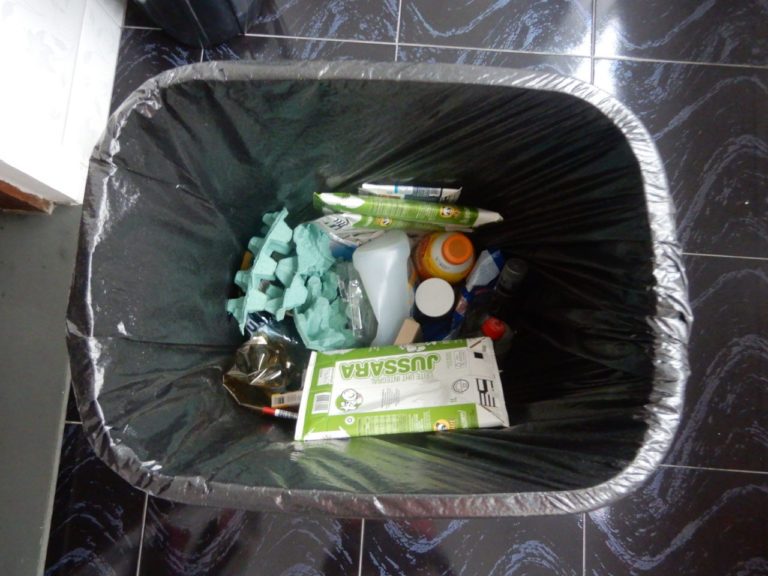
5 – Reuse and reduction of packaging.
I take my bags to the supermarket and did not take the plastic bags.
We always need bags to buy fruits and vegetables. They are reused in the sink or bathroom or take to the supermarket for purchase new fruits and vegetables avoiding catching new ones.
I do not buy products with Styrofoam packaging (bad for the environment), I go in bulk that comes with plastic sachets that is less polluting than styrofoam and is reusable and or recyclable.
I avoid to the maximum disposable products.
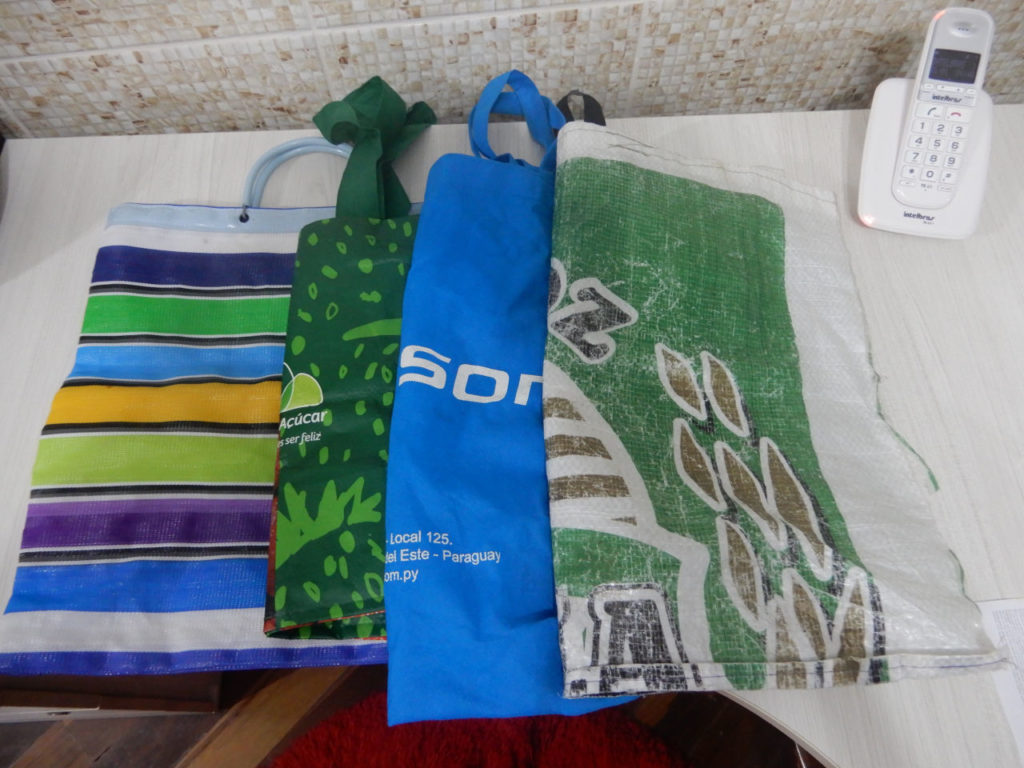
6 – Reuse and avoid disposable when away from home or work.
I’m often away from home, working and especially when I’m traveling.
So I have some strategies, to avoid disposable products and to continue safe.
- Avoid buying water in plastic bottles as much as I can, I use the tap. I have my filter kit, UV treatment and my Nalgene (reusable bottle) that keeps me safe.
- I economize not to spend money on buying water and not have another plastic bottle out there.
- If I need to buy the water, I buy it in large bottles and divide it into the nalgene, reducing the amount of plastic.
- When I ask for a juice, or soda always notice not to came with straw.
- Where possible I take my silverware, dishes and glass. So I avoid disposable products.
OS: There are plenty of places that if you bring your utensils, you get a discount.
In Europe I bought food in several supermarkets that you receive a discount or some prize for carrying your own packaging.
Coffee shop listings in London that give you discount if you bring your mug.
Another example in London is the Unpackaged, where you take the containers and buy everything in bulk.
My kit of reusable utensils.
I have several size and models that I use depending on the situation, but the basics are:
- For hot or cold drinks like water, juice, etc a Nalgene.
- Cup for hot drinks.
- Cup for cold drinks.
- Packing for cold liquids 750ml.
- MSR filter for water of doubtful origin.
- Steripen for instant water treatment without chemical
- Cutlery set
Dishes – I have several models and colors.
Send feedback
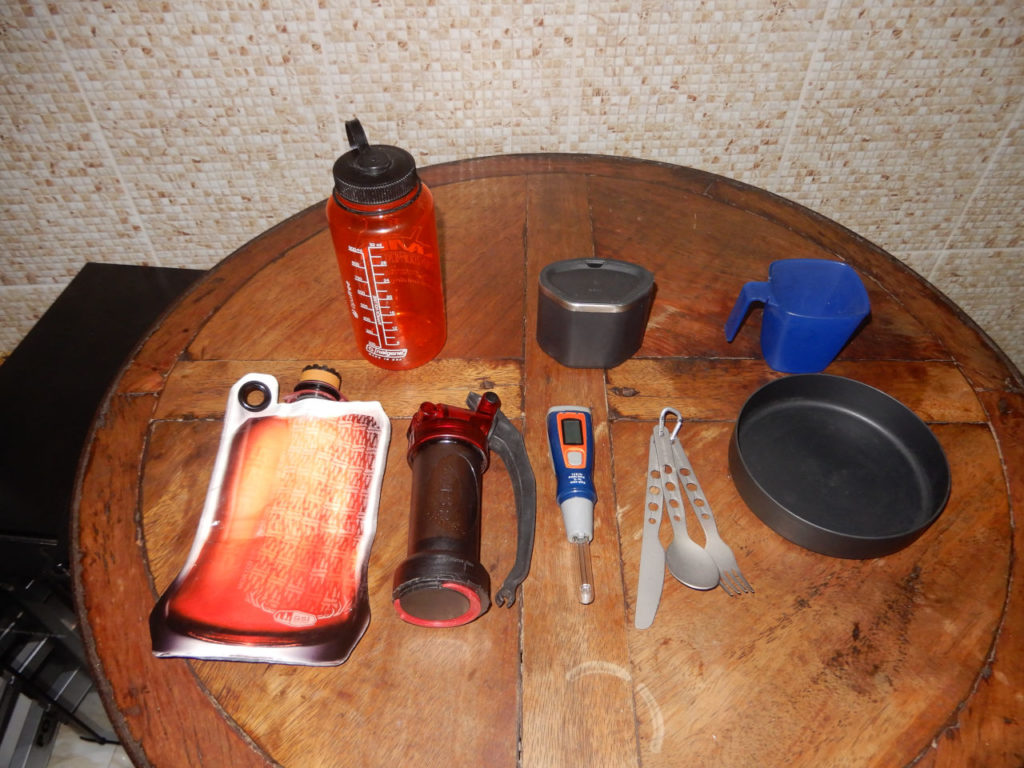
What else did I find out?
My possition is a moderate level in the environmental, social and economic aspects. Yet I’m not sustainable. There is a long way to reach this goal.
Akatu test shows where I need to improve.
I believe I am better than the test showed in reuse, recycling, and sustainable product purchases because the test was not so detailed and so did not accurately reflect my position.
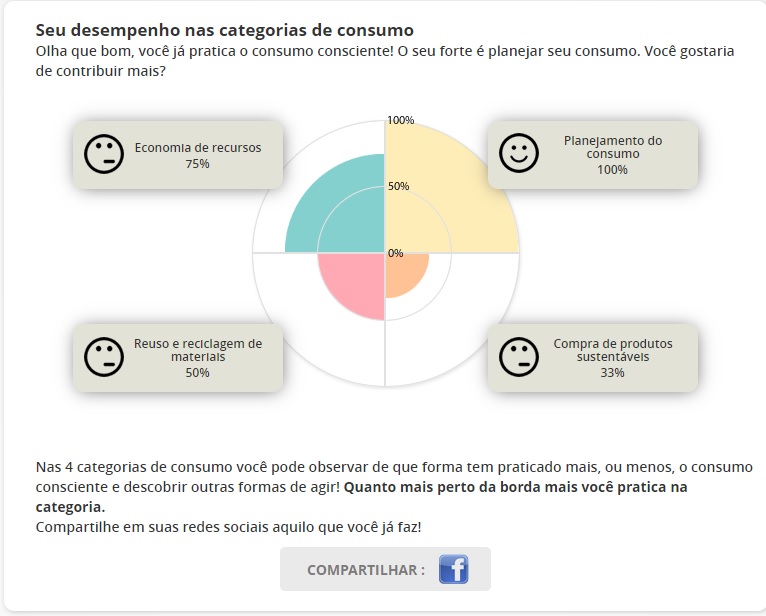
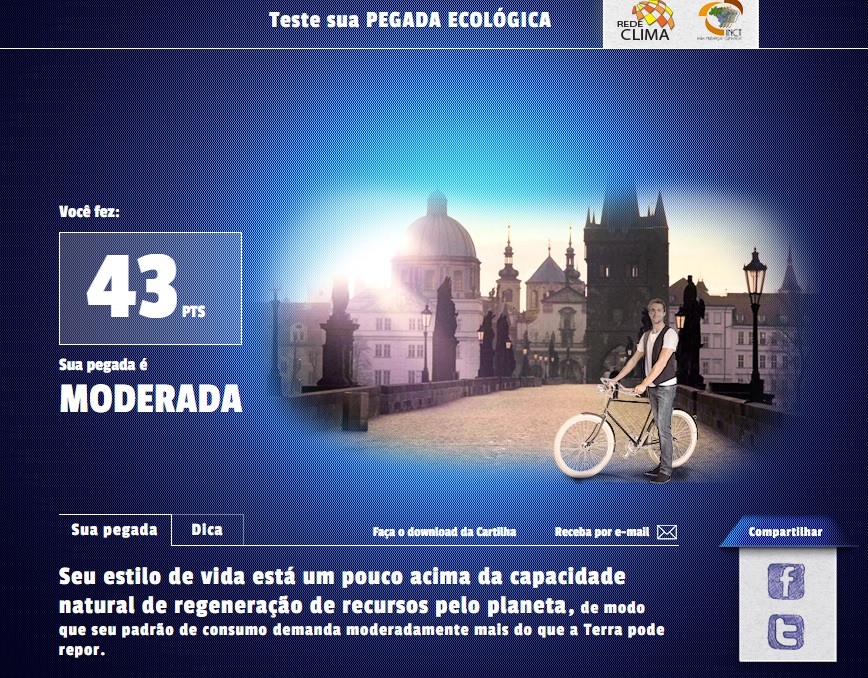
If you want a more accurate test, however, you will have to answer questions more accurately and it is in english is the Global Footprint network. They have many good data from each country.
Look at the situation in the United States where they have been well beyond their country’s ability to sustain them since 1961.
Where do you think these extra features come from?
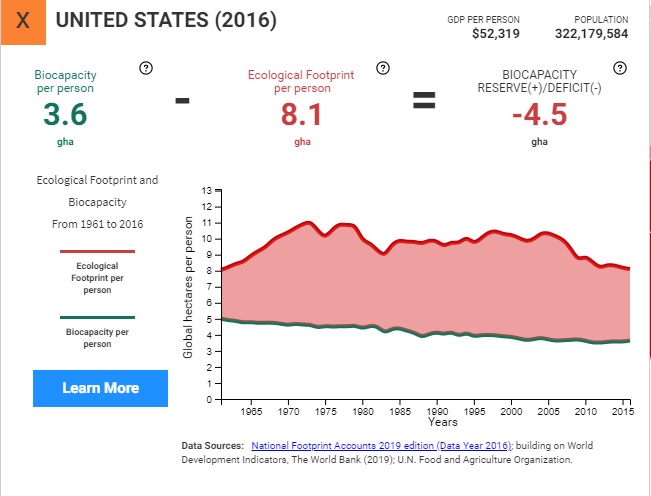
Brazil still has resources, but spare capacity is falling dramatically.
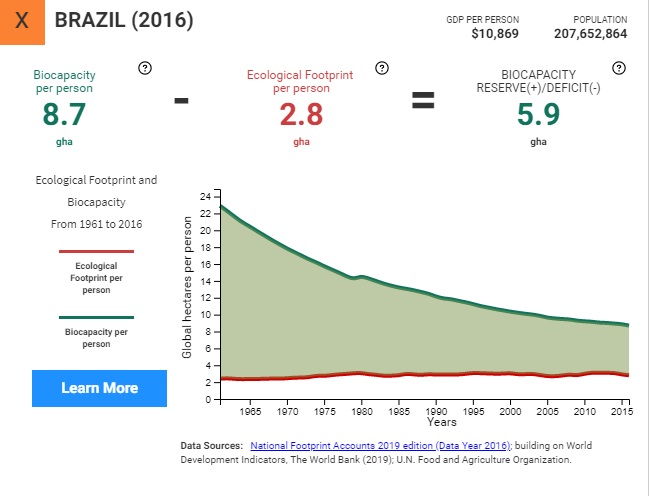
What are the next steps?
For some time now I have been thinking about it and I really like some concepts of sustainable development that emphasize the best way to consume.
I’ll talk more about each of them, but in summary are the following:
- Zero waste: Basically it is after every consumption of food, products and services that the waste is ZERO. By reducing consumption, reuse as much as possible, recycle as much as possible and compost organic waste using them in home gardens and plants. Do not use products that cause environmental pollution.
- Plastic free: Plastic is the most abundant, cheap and polluting material in the environment. Causing pollution, animal deaths, landfills, etc. The Plastic free initiative is based on the preservation of the environment through the non-production and consumption of plastic.
- Minimalist: It’s a way of life that makes people think about what truly matters and adds value to their life.
And other initiatives … ..
How about you make your analysis?
Make your own review and share with me what you discover. This will help us to find the best way to be sustainable.
Feel free.
